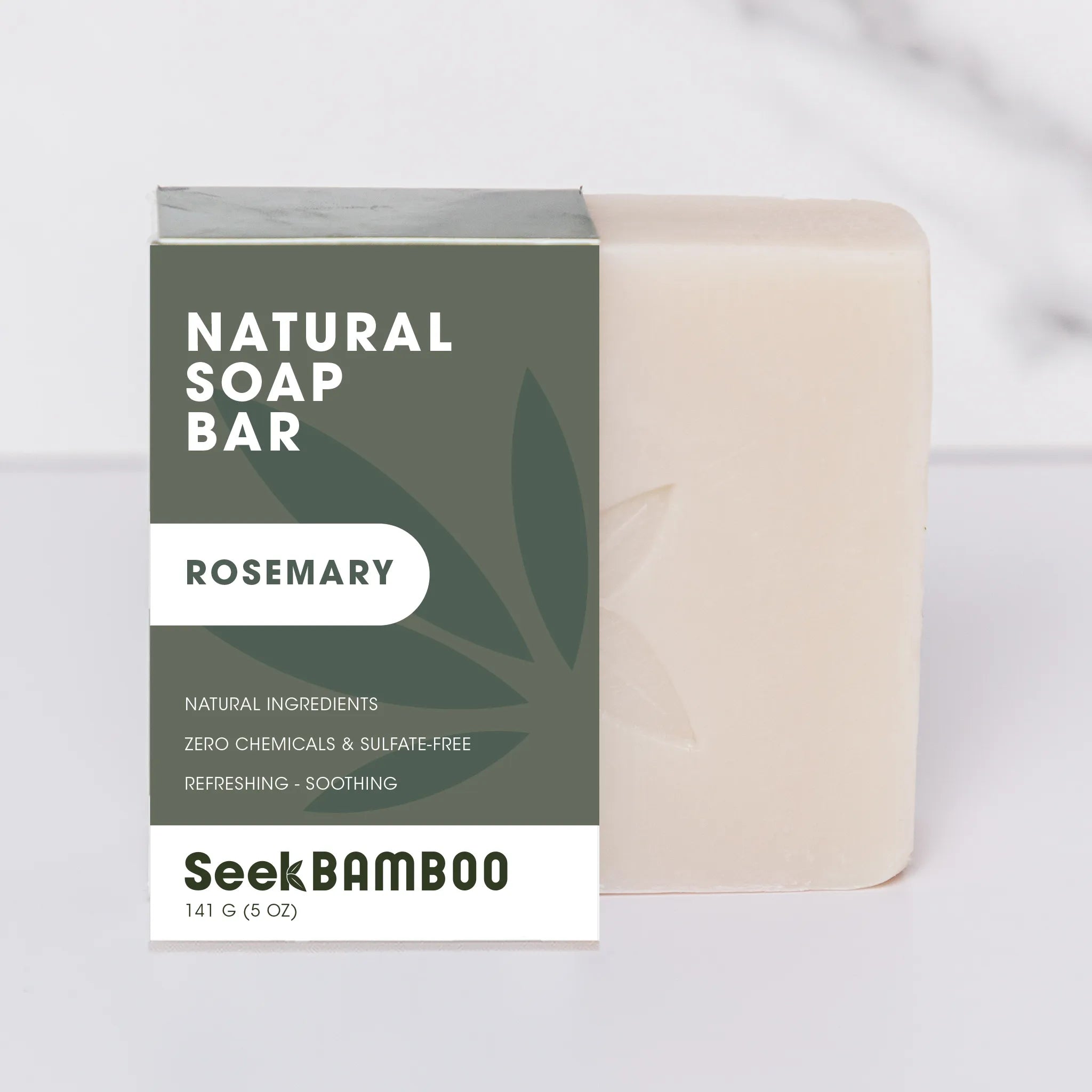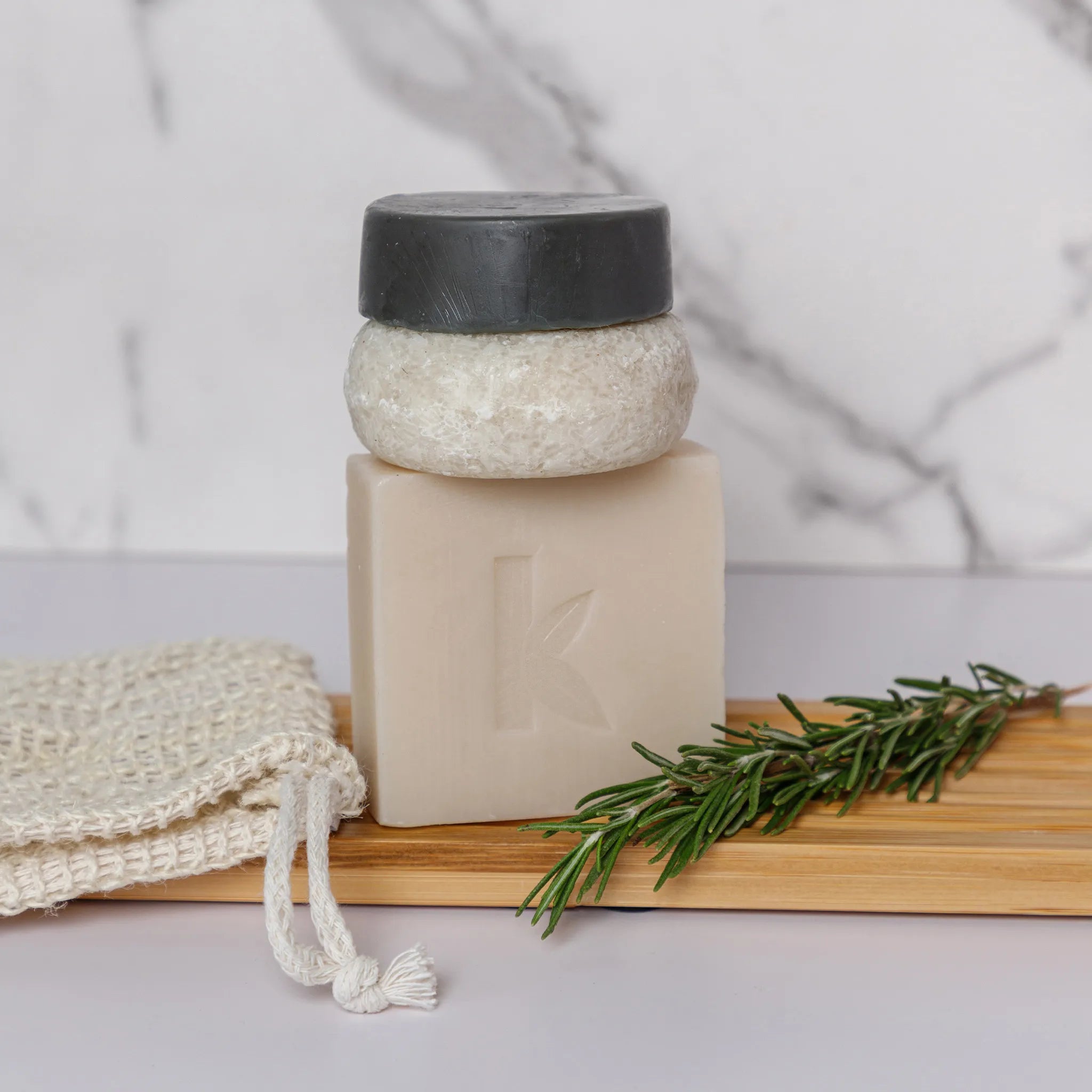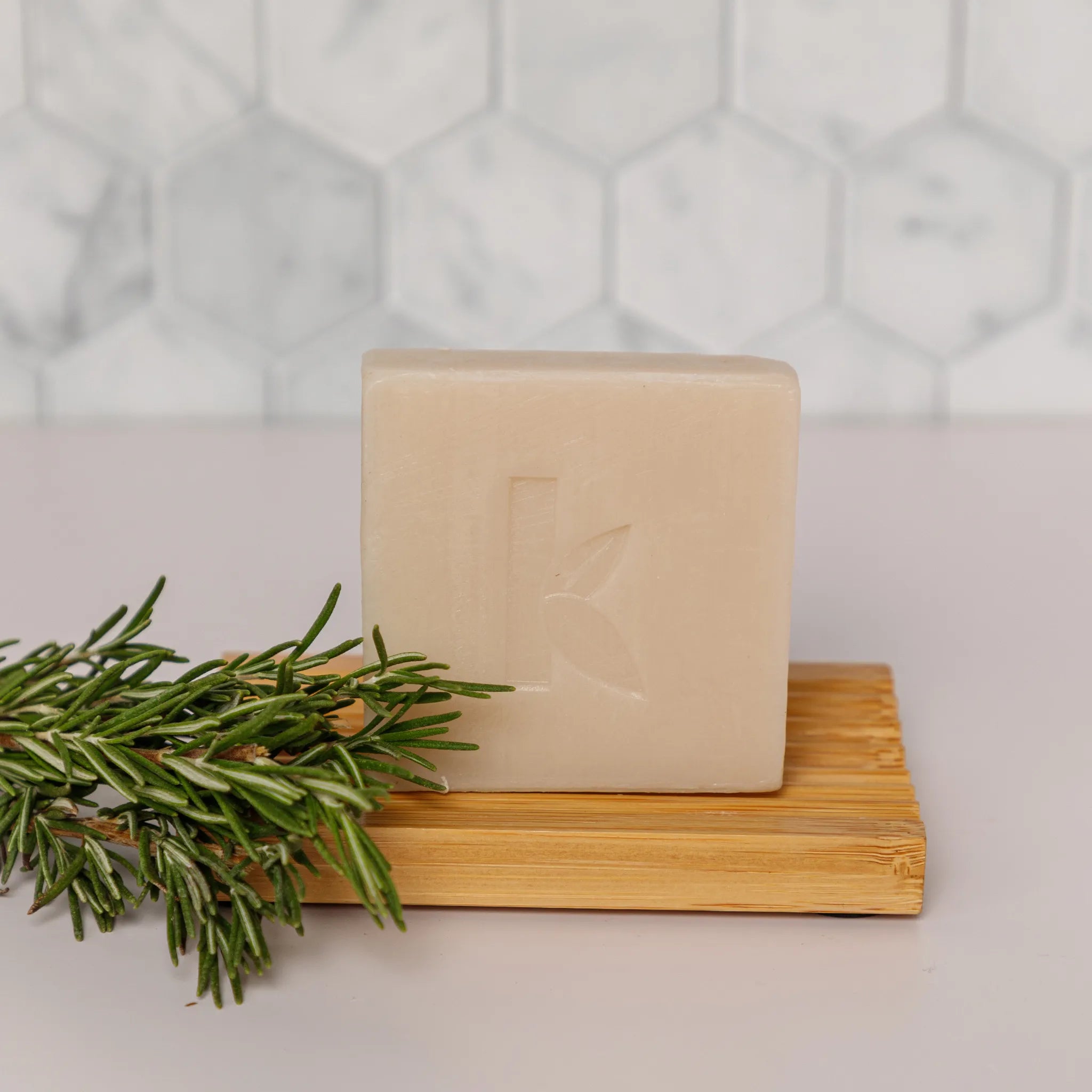Having issues signing in?
Use one of the following methods below to sign in.
Rosemary
Rosemary, scientifically known as Rosmarinus officinalis, is a fragrant, evergreen herb native to the Mediterranean region. It has been cherished for centuries, not only as a culinary staple but also for its numerous medicinal and therapeutic benefits. This aromatic herb holds a significant place in history, mythology, and wellness practices across various cultures.
A Brief History of Rosemary
Rosemary’s story dates back thousands of years. In ancient Greece, it was believed to improve memory and was often worn by scholars during examinations. The Romans, too, revered the herb, using it in religious ceremonies, weddings, and as a symbol of fidelity. Even in Egyptian culture, rosemary has been discovered in tombs as part of the preservation process for the dead.
Throughout history, rosemary became associated with mental clarity and remembrance. It is said that during the plague, people burned rosemary branches to purify the air, trusting in its antibacterial properties. Its medicinal uses spread widely, making it a key element in traditional remedies for boosting health and well-being.
What is Rosemary?
Rosemary is more than just a flavorful herb used in kitchens. It’s a powerhouse in the world of herbal medicine and natural beauty. The plant is rich in antioxidants, essential oils, and bioactive compounds that are known to promote healing. As an herb, rosemary can be used fresh or dried, and its essential oil has gained popularity for its wide range of applications—from hair care and skincare to aromatherapy.
When used in essential oil form, rosemary becomes even more potent, offering concentrated benefits for memory, focus, and overall wellness. Its stimulating and rejuvenating effects have made it a go-to ingredient in many natural products.
As you continue to explore all things rosemary, you’ll discover that it is not just an herb with a rich past but a modern-day essential for wellness, health, and beauty. Whether it’s in your diet, skincare routine, or daily wellness practice, rosemary’s versatile benefits make it a herb worth celebrating.

Health Benefits of Rosemary
Rosemary is more than just a flavorful herb; it’s a natural remedy with impressive health benefits that span across hair care, skincare, mental wellness, and more. Packed with antioxidants and anti-inflammatory compounds, rosemary has become a popular choice for those looking to enhance their natural beauty and overall well-being. Let’s explore the specific health benefits that rosemary can offer:
Hair Health
One of the most well-known benefits of rosemary is its ability to promote healthy hair growth. Rosemary oil has been traditionally used to stimulate hair follicles, improving circulation to the scalp and encouraging new hair growth. It’s an effective natural remedy for conditions like alopecia (hair loss) and can also help prevent thinning hair as we age.
In addition to promoting growth, rosemary helps to strengthen existing hair, reducing breakage and split ends. It also has antimicrobial properties, making it a great choice for reducing dandruff and maintaining a healthy scalp. Whether used in the form of a rosemary-infused hair rinse or a nourishing shampoo bar, this herb is a powerful tool for vibrant, healthy locks.
Skin Benefits
Rosemary's natural anti-inflammatory and antibacterial properties make it a wonderful addition to any skincare routine. It is especially effective for treating acne and oily skin due to its ability to cleanse and balance oil production. The antioxidants found in rosemary help to protect the skin from free radicals, which contribute to premature aging and skin damage.
Rosemary can also soothe irritated skin, making it ideal for people with sensitive or inflamed skin conditions. Its ability to promote circulation helps rejuvenate the skin, reducing puffiness and giving your complexion a healthy, youthful glow. Many skincare products incorporate rosemary for these reasons, and DIY rosemary-infused toners or facial oils are great natural alternatives.
Mental Clarity
Rosemary isn’t just beneficial for the body—it's also a powerful ally for the mind. The aroma of rosemary has been linked to improved cognitive function and memory. In fact, research has shown that inhaling rosemary essential oil can enhance concentration, mental clarity, and overall cognitive performance. This makes rosemary an excellent companion during periods of study or focus-heavy tasks.
Additionally, rosemary's soothing yet invigorating scent helps to relieve stress and anxiety. Whether used in aromatherapy, bath soaks, or even in a simple homemade room spray, rosemary can help create a calming atmosphere while boosting mental sharpness.
Anti-inflammatory Properties
Rosemary has long been used to help reduce inflammation in the body. Its anti-inflammatory compounds, such as rosmarinic acid, help alleviate muscle and joint pain, making it a popular choice for natural relief from conditions like arthritis and sore muscles.
Incorporating rosemary into your daily diet or wellness routine can also contribute to overall health by reducing chronic inflammation, which is a known contributor to many diseases. Whether in the form of teas, topical oils, or supplements, rosemary’s anti-inflammatory benefits can support a more balanced, pain-free life.
Uses of Rosemary in Everyday Wellness
Rosemary’s versatility extends beyond its health benefits. This herb can be seamlessly incorporated into your daily routine to enhance both your physical and mental well-being. From skincare rituals to digestive health, rosemary has a place in nearly every aspect of natural wellness. Let’s explore how you can use rosemary in your everyday life:
Aromatherapy
Rosemary essential oil is a staple in the world of aromatherapy, offering a natural way to relieve stress, improve focus, and promote better sleep. The invigorating scent of rosemary has been shown to stimulate the brain, enhance memory retention, and reduce feelings of anxiety.
To incorporate rosemary into your aromatherapy routine:
Hair Care
Rosemary is a powerful ally in natural hair care, celebrated for its ability to strengthen hair, stimulate growth, and soothe the scalp. If you're looking to enhance your hair health naturally, rosemary-based products are a must-try. Two standout products that make it easy to incorporate rosemary into your daily routine are rosemary shampoo bars and rosemary conditioner bars.
Skincare
Rosemary is a powerful addition to any skincare routine. With its antimicrobial, anti-inflammatory, and antioxidant properties, it can help treat acne, balance oily skin, and protect against signs of aging. Rosemary also promotes circulation, which helps to brighten and tone your complexion naturally.
Here are some easy ways to incorporate rosemary into your skincare:







✓ Free of sulfates, parabens, dyes, & synthetic fragrances
✓ 5 oz. bar size — long-lasting lather with every wash
✓ Naturally rich in rosemary’s soothing & anti-inflammatory properties
✓ Antioxidant-packed to support healthy, rejuvenated skin
✓ Cold-processed for a nutrient-packed, gentle cleanse
Digestive Health
Rosemary has long been used in herbal medicine to support digestive health. It stimulates the production of bile, which aids in the digestion of fats and helps reduce symptoms of indigestion, bloating, and gas. Rosemary can also help regulate gut flora and relieve stomach cramps, making it a must-have for those prone to digestive discomfort.
To harness rosemary’s digestive benefits:
Culinary Uses of Rosemary
Rosemary is not only a versatile herb in wellness and beauty but also a culinary gem. Its robust, earthy flavor can elevate a variety of dishes, from savory meals to unique sweet treats. Whether you’re using it fresh or dried, rosemary adds a fragrant depth to your cooking. Let’s explore some of the best ways to incorporate rosemary into your kitchen:
Best Dishes to Incorporate Rosemary
Rosemary's bold, pine-like aroma complements a wide range of savory dishes. Here are a few popular ways to use rosemary in cooking:
How to Make Rosemary-Infused Oils, Vinegars, and Teas
Rosemary can be preserved and used in many forms to enjoy its flavor year-round. Here’s how to create your own rosemary-infused oils, vinegars, and teas:
Rosemary in Herbal Medicine
Rosemary has been cherished for its healing properties for centuries, finding its place in various traditional remedies and natural health practices. Its potent blend of antioxidants, anti-inflammatory compounds, and essential oils makes it a staple in herbal medicine across many cultures. In modern times, scientific research is starting to catch up with what ancient healers already knew: rosemary has incredible medicinal potential.
Traditional Uses of Rosemary in Natural Remedies
Throughout history, rosemary has been a go-to herb for a wide range of ailments. In ancient Greece and Rome, it was commonly used to improve memory and treat digestive issues. Herbalists in the Middle Ages believed that rosemary could help ward off illness, purify the air, and protect against the plague.
Some of the key traditional uses of rosemary include:
Modern Scientific Research on Rosemary's Medicinal Uses
In recent years, modern science has validated many of the traditional uses of rosemary. Studies have shown that the herb’s potent bioactive compounds—such as rosmarinic acid, carnosic acid, and cineole—contribute to its wide-ranging health benefits.
Here are some of the key medicinal uses of rosemary supported by current research:

Growing Rosemary at Home
Growing rosemary at home is a rewarding experience, whether you’re cultivating it indoors in a small pot or planting it outdoors in your garden. Rosemary is a hardy, low-maintenance plant that thrives in a variety of climates, making it accessible to both beginner and seasoned gardeners. With its evergreen nature and fragrant leaves, rosemary adds both beauty and function to any space. Here’s how you can grow, harvest, and store rosemary for long-term use.
Tips for Planting and Growing Rosemary Indoors and Outdoors
How to Harvest, Dry, and Store Rosemary for Long-Term Use
Rosemary Essential Oil
Rosemary essential oil is one of the most potent and versatile forms of rosemary, offering a wide range of benefits for both body and mind. Whether applied topically, inhaled, or diffused in your living space, rosemary essential oil can be used for everything from improving cognitive function to relieving muscle tension. Let’s dive into the numerous benefits of rosemary essential oil and how to properly use it in your daily wellness routine.
Benefits of Rosemary Essential Oil
Topical Application of Rosemary
When diluted with a carrier oil, rosemary essential oil can be applied directly to the skin to address various concerns, including muscle pain, joint stiffness, and skin irritation. Its anti-inflammatory and analgesic properties make it an excellent remedy for conditions like arthritis, muscle soreness, and even headaches. For hair care, rosemary oil can be massaged into the scalp to stimulate hair growth, reduce dandruff, and improve overall scalp health.
Inhalation of Rosemary
Inhaling rosemary essential oil is a simple yet powerful way to benefit from its uplifting and clarifying properties. Research has shown that inhaling the aroma of rosemary oil can improve memory retention, focus, and mental clarity. It’s a popular choice for students or professionals looking to boost concentration and cognitive performance during study or work sessions. Additionally, rosemary's refreshing scent helps relieve stress, anxiety, and mild depression.
Diffusing Rosemary
Diffusing rosemary essential oil in your home or workspace can create an invigorating atmosphere that supports mental clarity and relaxation. The scent of rosemary can help lift your mood, reduce mental fatigue, and create a stimulating environment that encourages productivity. Rosemary oil can also be combined with other essential oils like lavender or eucalyptus to create a balanced, calming yet energizing blend for aromatherapy.
How to Properly Dilute and Use Rosemary Essential Oil
Because rosemary essential oil is highly concentrated, it’s crucial to dilute it before applying it to your skin or using it in a bath. Here’s a guide on how to safely use rosemary essential oil for different purposes:
Diluting for Topical Use
Always mix rosemary essential oil with a carrier oil such as coconut oil, olive oil, or jojoba oil. A good rule of thumb is to use 2-3 drops of rosemary essential oil for every teaspoon of carrier oil. This diluted blend can be used for massaging sore muscles, relieving joint pain, or promoting hair health by applying it to the scalp.
Using in Diffusers
To create an energizing atmosphere, add 3-5 drops of rosemary essential oil to your diffuser. This can be especially helpful during periods of mental fatigue, study, or creative work. Combine with oils like peppermint for focus or lavender for a calming balance. Diffusing rosemary oil can also help purify the air, offering a refreshing environment for both your mind and body.
Inhalation for Quick Relief
For quick inhalation, place a drop of rosemary oil on a tissue or your palms, cup your hands around your nose, and inhale deeply. This method is perfect for boosting concentration or relieving stress on the go. You can also add a few drops to a bowl of hot water, cover your head with a towel, and inhale the steam for a few minutes to clear your sinuses and improve respiratory health.
Bathing with Rosemary Essential Oil
Add 5-7 drops of rosemary essential oil to a warm bath, along with a cup of Epsom salts, for a deeply relaxing experience. The oil’s anti-inflammatory properties can help relieve sore muscles, while the calming scent works to alleviate mental stress and anxiety.
The Timeless Power of Rosemary
Rosemary is more than just a fragrant herb used to flavor dishes—it is a timeless symbol of wellness, healing, and vitality. From its ancient history as a memory enhancer and digestive aid to its modern uses in natural skincare, hair care, and aromatherapy, rosemary continues to be a versatile and powerful herb that enhances our daily lives.
We’ve explored the health benefits of rosemary, discovering its ability to promote hair growth, improve skin health, boost mental clarity, and reduce inflammation. As an essential oil, rosemary offers a myriad of uses, from diffusing for focus and relaxation to topical applications that relieve pain and stimulate hair follicles. Whether you’re crafting DIY skincare products, adding a touch of nature to your culinary creations, or growing your own rosemary at home, the herb’s uses are endless.
Through traditional herbal medicine and modern scientific validation, rosemary has proven itself as a natural powerhouse. Growing this herb at home and making use of its essential oils opens the door to a sustainable, healthy lifestyle. From improving digestion to enhancing beauty routines and promoting cognitive health, rosemary stands out as an essential part of any wellness routine.
Incorporating rosemary into your everyday life means embracing a holistic approach to health and well-being—one that connects you with nature’s wisdom and supports both body and mind. Whether it’s through a rosemary shampoo bar, a warm cup of rosemary tea, or simply enjoying its fresh aroma in your home, this herb continues to enrich our lives, just as it has for centuries.
Everything About Benefits and Uses Of Rosemary
Rosemary offers numerous health benefits, including improving digestion, reducing inflammation, and boosting cognitive function. It's rich in antioxidants and anti-inflammatory compounds, which may help reduce the risk of chronic diseases. Additionally, rosemary oil is known to enhance hair growth and alleviate scalp issues like dandruff.
Rosemary is a natural remedy for promoting hair growth and preventing hair loss. You can use rosemary essential oil by mixing a few drops with a carrier oil, such as coconut or jojoba oil, and massaging it into your scalp. This stimulates blood circulation and strengthens hair follicles. You can also find rosemary-infused shampoo bars that are gentle on the hair while providing these benefits.
Yes, studies suggest that the aroma of rosemary can enhance cognitive performance. Inhaling rosemary essential oil has been linked to improved memory retention and mental clarity. You can diffuse rosemary oil in your workspace or add a few drops to a handkerchief for a quick mental boost.
Absolutely! Rosemary has antimicrobial and anti-inflammatory properties that can help reduce acne and soothe irritated skin. It also promotes circulation, which can improve skin tone and reduce puffiness. Many skincare products feature rosemary as a key ingredient for its anti-aging and healing effects.
Rosemary is widely used in cooking to enhance the flavor of dishes, especially meats, vegetables, and breads. It adds an earthy, aromatic flavor to roasts, soups, and stews. You can also make rosemary-infused oils or teas for a more subtle use in recipes.
Rosemary is relatively easy to grow both indoors and outdoors. It thrives in well-drained soil and requires plenty of sunlight. Make sure not to overwater it, as rosemary prefers dry conditions. You can grow it in pots for convenience or plant it directly in your garden for a beautiful, aromatic addition.
Rosemary essential oil is highly concentrated, so it should always be diluted with a carrier oil, such as olive or almond oil, before applying it to the skin. Undiluted essential oils can cause skin irritation, especially for those with sensitive skin.
Rosemary is generally safe when used in moderation, but it can cause allergic reactions or skin irritation in some people. Pregnant or breastfeeding women should avoid using rosemary oil in high amounts, and individuals with epilepsy should be cautious with its use due to its stimulating effects.
Yes, rosemary is effective in treating dandruff due to its antifungal and antimicrobial properties. It helps reduce scalp irritation and flaking by promoting healthy skin regeneration. You can use rosemary oil or a rosemary shampoo bar to address dandruff issues.
To make rosemary-infused oil, take fresh or dried rosemary sprigs and immerse them in a high-quality carrier oil like olive oil. Seal the container and let it sit in a cool, dark place for 2-4 weeks. After that, strain the rosemary out and use the oil for cooking or as a beauty product.
In small amounts, rosemary is generally safe for dogs and cats. It’s often used in pet shampoos and foods due to its antioxidant properties. However, rosemary essential oil should never be applied directly to pets, as it can cause skin irritation or even toxicity in large amounts.
Rosemary has been used traditionally to aid digestion and alleviate symptoms like indigestion, bloating, and gas. It helps stimulate the production of bile, which is essential for the digestion of fats. Drinking rosemary tea after meals is a simple way to support digestive health.
Drinking rosemary tea daily in moderate amounts is generally safe and can offer several health benefits, such as improved digestion, enhanced memory, and reduced inflammation. However, excessive consumption may lead to adverse effects, such as nausea or stomach upset. It’s best to enjoy rosemary tea in moderation.
You can incorporate rosemary into your daily life in various ways. Use rosemary essential oil in diffusers to improve focus and memory, add fresh rosemary to meals for flavor and health benefits, or make homemade skincare products like toners and face masks. Rosemary hair care products, such as shampoo bars or hair oils, can also be part of your routine for healthier hair.